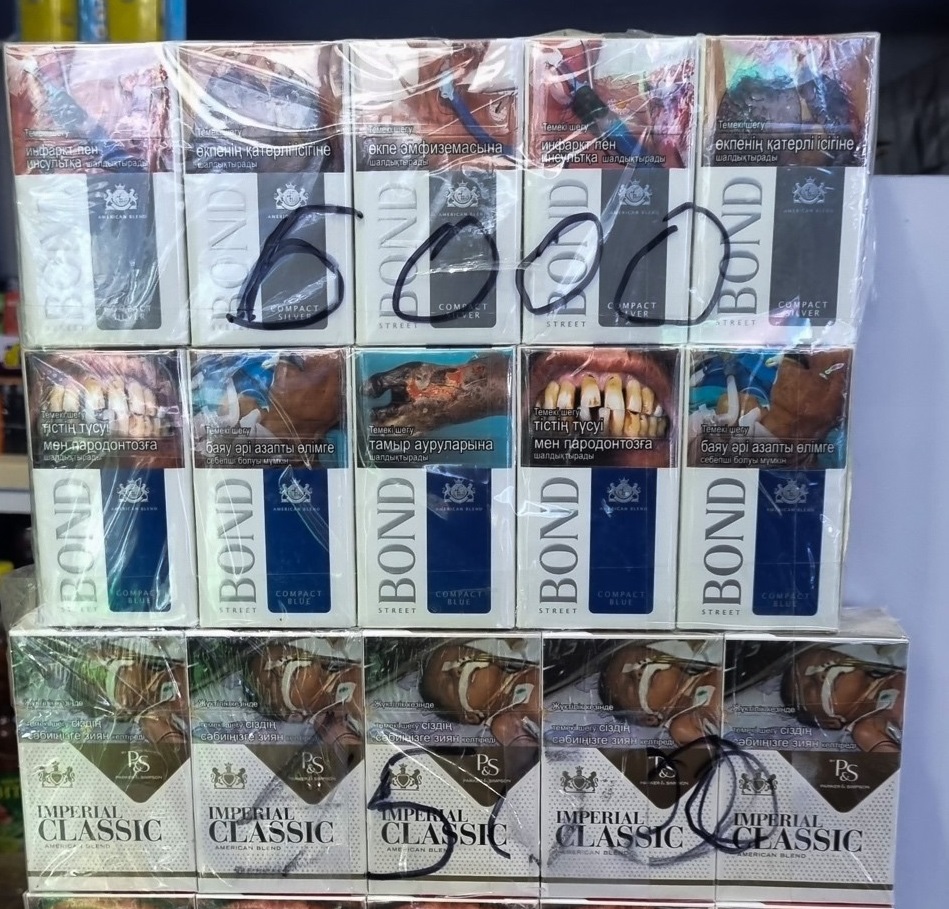Kazakhstan's tobacco mafia
Rising inflation coupled with the involvement of various criminal groups and corrupt officials are making the illegal tobacco business increasingly swirling. In some cities, such as Almaty, the fight against gangs is beginning to yield some results, but in Šymkent the police are proving impotent, and the city has now become the main smuggling hub
Astana (AsiaNews) - In recent years, the illegal trafficking of contraband and counterfeit cigarettes has been growing in Kazakhstan, using all possible channels, from re-export to Duty-free abuses to warehouses for the temporary storage of goods.
The growth of inflation, the moratoriums on checks by the MSB (Inter-Republic Security Service) services, the involvement of various criminal groups and corrupt officials are making the illegal tobacco business increasingly turbulent.
One of the centers of the criminal spread of cigarettes is the city of Šymkent, the third most populous in Kazakhstan with over one million inhabitants, near the border with Uzbekistan. Here in the markets it is easy to meet smugglers, with whom the journalists of Orda.kz tried to communicate.
According to tobacco production experts, in 2023 Kazakhstan lost almost 33 billion tenge (about 70 million euros) in excise duties due to cigarette smuggling, and this figure is expected to increase next year by another 10 billion .
To date, in Kazakhstan it is forbidden to sell cigarettes for less than 710 tenge (1.40 euros) per pack, while on the markets and often even in shops they are bought for 450-500 tenge, whether they are smuggled or counterfeited, and the reactions of the prosecutor's offices and the relevant committees are slow in arriving. In theory, any citizen has the right to report these violations with an app on their smartphone, but state officials place all kinds of obstacles in the way of a truly repressive smuggling policy.
The "tobacco mafia", as it is defined by local journalists, keeps local administrations in check, especially in some regions, and complaints are blocked by requests for explicit evidence, asking for photographs and even sales receipts as proof, otherwise the everything ends with the phrase "we don't see enough evidence" to carry out checks on market stalls and tobacconists.
As told by Lejla Mustafina, director of the Kazakhtelekom project for consumer defense and product control, to which the government has delegated the digitalisation of the commercial sector, compulsory stamping of all tobacco products has been introduced since 2020, and consumers can check the authenticity of the brand by scanning it with the Naqty Onim mobile app.
If the verification does not give a recognizable result, a signal is automatically sent to be forwarded to the competent services, but "despite all precautionary measures and even moratoriums, the volume of the gray market does not decrease", concludes Mustafina.
Buyers are afraid of the reactions of criminals, also because the few complaints are not followed by convinced actions by the institutions, while those who report have to leave their personal data, becoming an easy target of reprisals by the mafiosi. In some cities like Almaty the fight against the gangs is starting to produce some results, but in Šymkent the police prove impotent, and the city has now become the main hub for smuggling. In some shopping centers such as Akbar, which is mainly intended for wholesale sales, smugglers do not even try to hide, placing illegal cigarettes on large counters in the most visible places.
The counterfeit products mostly come from Kyrgyzstan, which in turn receives them from the United Arab Emirates, where the so-called Jebel Ali "free trade zone" is active in which 27 "illegal white" cigarette factories operate.
This definition applies to brands of companies that are completely legal, but should remain in the domestic market, and are instead exported without any taxation to other countries.
The routes of these "whites" pass from Eastern Europe to Central Asia, to then spread throughout Europe, Asia and Africa. In "civilian" airports, airport duty-free shops are often enormous, while in Kyrgyzstan and Kazakhstan they are small, almost invisible stalls, behind tents that open wide to the borderless world of international smuggling.
Photo taken from the Orda.kz website
17/03/2005







.png)










